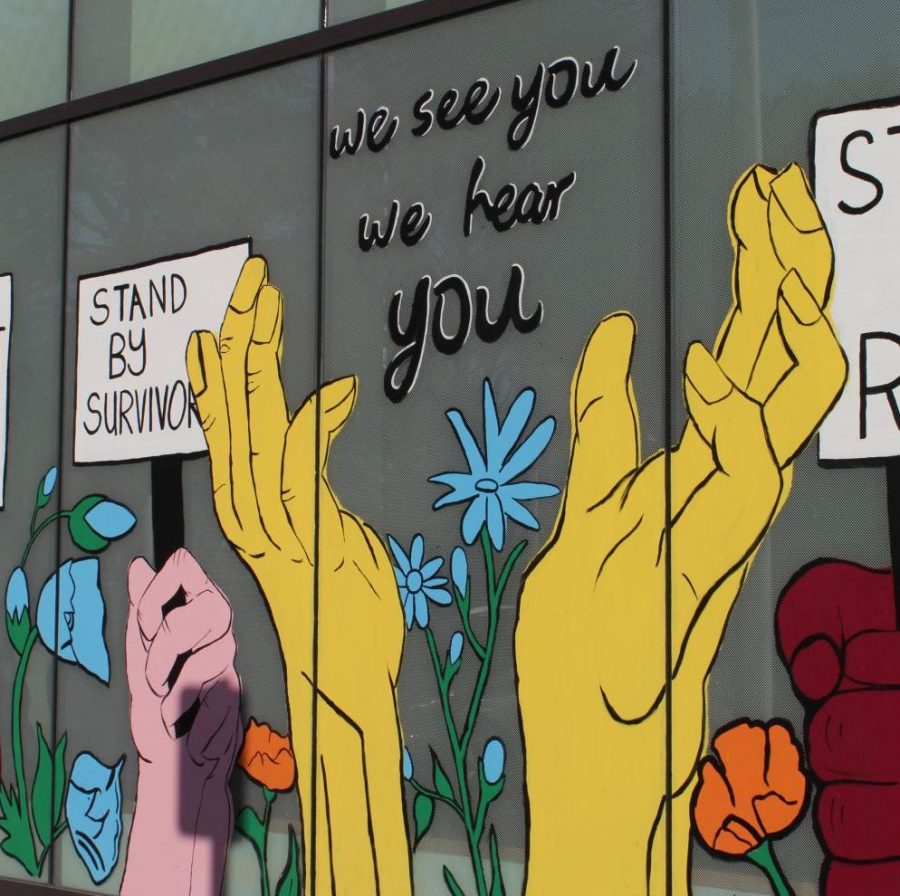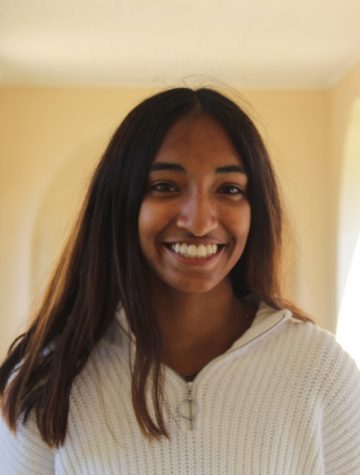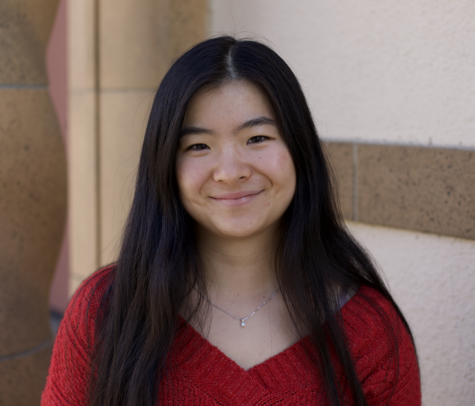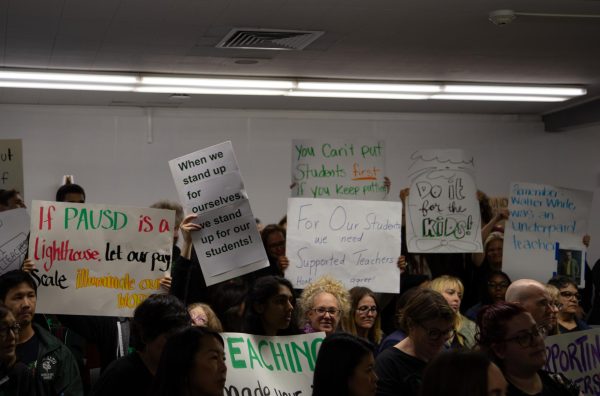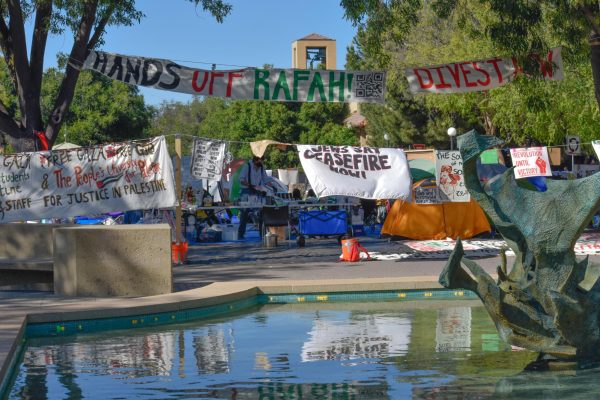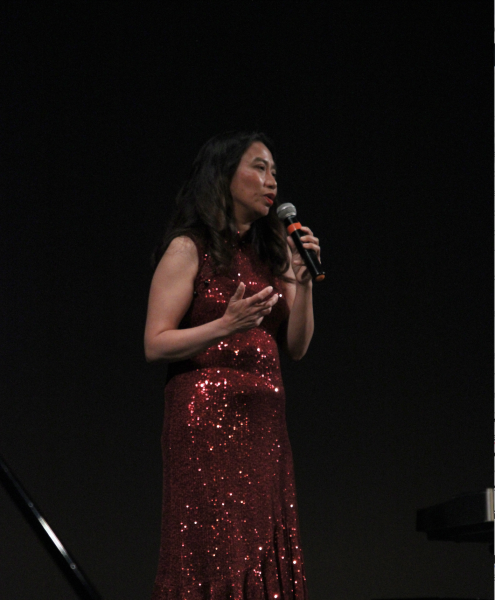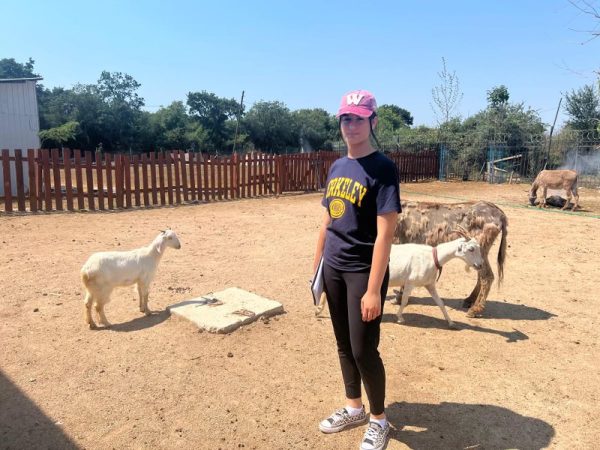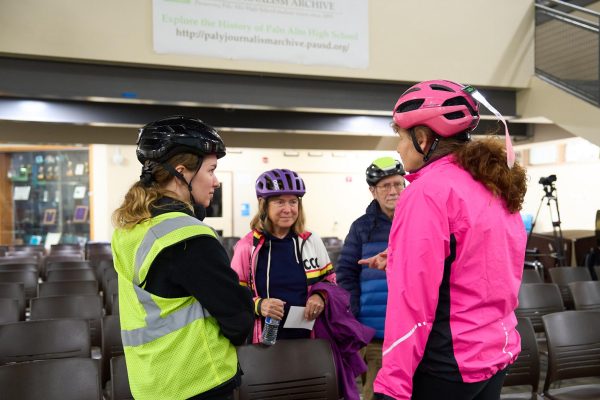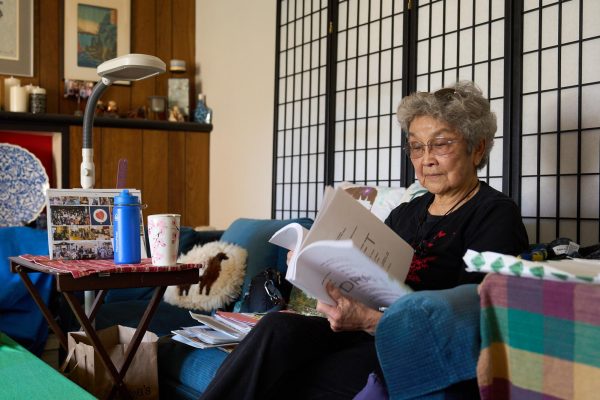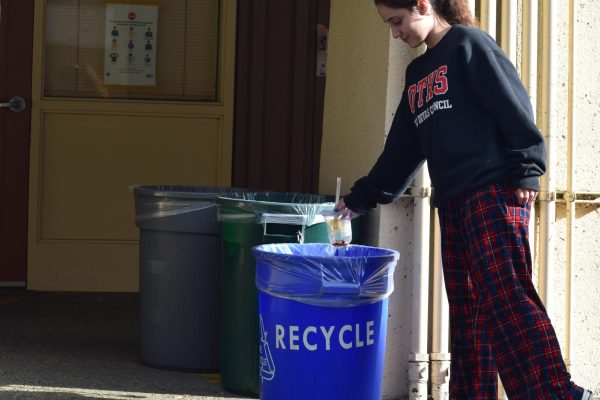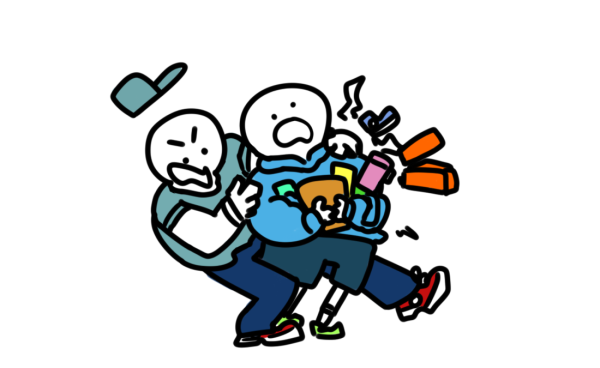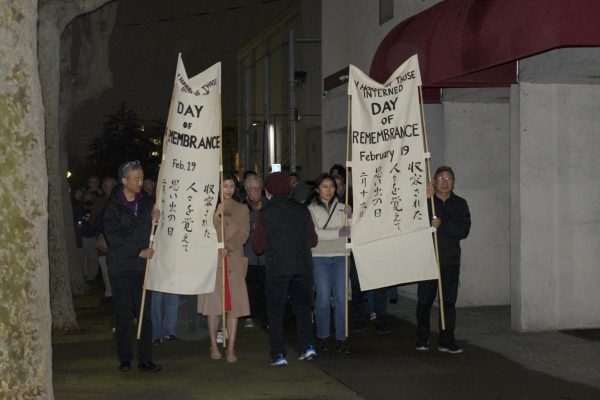Paint and a Problem
Consent education at PAUSD.
May 25, 2021
Photos by Arati Periyannan
Painted hands clutch signs reading ‘“No” Doesn’t Mean Convince Me’ and ‘Stand by Survivors’ on a sexual assault mural splashed across the windows of Mitchell Park Library. Designed by Paly junior Alison Xiong, the mural aimed to increase awareness around sexual violence, and support survivors. Messages on the signs were inspired by the volunteers who helped paint.
“I wanted to reflect in the mural ‘bold, calming, present, and a statement’,” Xiong said.
Besides those anchoring ideas, the Teen Arts Council, which sponsored the mural, also had to consider the location in the mural’s design: a very public location.
“We wanted to make sure our message was getting across and that we weren’t really censoring ourselves when we definitely had something to say,” Paly senior Emma Cudahy, TAC co-president said.
Instead of going for shock value, they emphasize supporting survivors, said Paly junior Kyla Schwarzbach, who helped plan and paint the mural.
“I ended up choosing to incorporate a pair of hands in an uplifting pose as the focal point of the mural, and also numerous other hands below it holding signs in a show of support,” Xiong said. The flowers, added for compositional interest, symbolize growth, she added.
We weren’t really censoring ourselves when we definitely had something to say.
— Emma Cudahy, Paly senior, Teen Arts Council co-president
Many participants helped paint the mural, not only from TAC but other organizations such as Paly RISE and Gunn Hands Off Title IX.
“People would walk by while we were painting it, and they were just so intrigued, like what is this thing? What is going on?,” senior Jonathan Sneh, publicity head for Teen Arts Council said.
“I could see in people’s eyes and their words and stuff that like ‘A’ they were happy that there was art in the community. And then ‘B’ that not only was this art, it was art with a purpose, with a clear purpose of highlighting the resiliency of survivors of sexual assault and making sure that we spread our message that we don’t — we can’t live in a culture where this stuff continues to happen,” Sneh said.
The mural was also important because even in Palo Alto, there’s still an underlying culture of disrespecting sexual assault survivors and the idea of consent, Cudahy said.
“Working to de-stigmatize the whole topic, especially in schools, is really important,” she said.
Amid recent demands for change and the sharing of stories on social media, many students have called for their voices to be acted upon.

It was art with a purpose, with a clear purpose of highlighting the resiliency of survivors of sexual assault and making sure that we spread our message.
— Jonathan Sneh, Paly senior; publicity head for Teen Arts Council
“It’s all well and good to listen to what we have to say, but people in positions of power have to really be willing to meet with teens and respect the fact that they have a better understanding of the situation because they’re in it,” Schwarzbach said. “It’s just unacceptable that you don’t really understand the concept of consent when you’re in high school, or you only first learn about consent when you’re in eighth grade or seventh grade, because it’s considered taboo or dirty.”
Consent in sexual contexts is taught at the middle school level at PAUSD, but parents can choose to opt their children out of the 12-session program, which has also been criticized both for being age-inappropriate and also for being overly shallow. However, only 1 percent of students did opt out in 2017 at middle schools JLS and Fletcher, the only data available.
“Consent is not only in sexual situations, consent is a life skill you need to have,” Schwarzbach said. “It needs to be a conversation we’re having with elementary schoolers just about like ‘Hey, this is your body. No one gets to touch it unless you let them.’ I feel like that doesn’t need to be an uncomfortable conversation to have. It’s basic autonomy, and it shouldn’t be so politicized.”
The occasional assembly on the safety of sending nude photos, the importance of consent, and other related topics are also mandatory for middle school and high school students at PAUSD.
However, some say these talks are ineffective, or even counterproductive.
“Dear administrators, we’re done with the tea video,” Schwarzbach said, referencing a video explaining consent by comparing it to offering someone tea. “We don’t need to see it anymore. Don’t talk to us like we’re five years old.”
The tea video is just one example of the content shown during school assemblies. PAUSD also hires professionals to give one-off talks in middle and high schools.
“I feel like Paly administration really wants to say like ‘Oh, look, we put on this assembly’ that no one took seriously and just kind of led to a lot of offensive comments and things that probably made a lot of sexual assault survivors feel very uncomfortable,” Cudahysaid.
What steps should PAUSD take, then?
“A big way to start is having students talk to students. Like high schoolers going to middle school to talk about it,” Schwarzbach suggested. “If you were able to get another kid to be talking to you about this, I think that would add a level of seriousness and just like ‘Oh my God, they’re cool. They’re older than me. And they care about this. Maybe I need to take a second and listen to what they have to say.”
